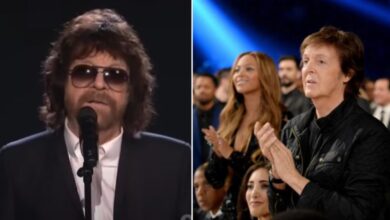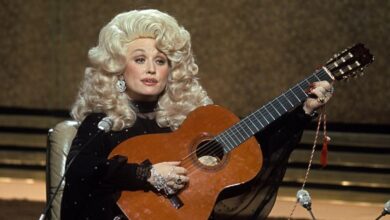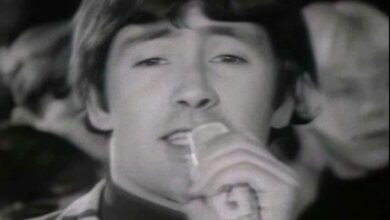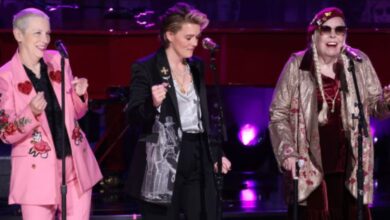Lesley Gore’s “You Don’t Own Me” Defies Expectations and Sparks Empowerment in 1963
In 1963, amidst a sea of saccharine love songs and innocent teen anthems, Lesley Gore released “You Don’t Own Me,” a fierce declaration of independence that stood in stark contrast to the conventional pop narratives of the time. Written by John Madara and David White, the song immediately captured the attention of audiences with its commanding tone and unapologetic message. It soared to number two on the Billboard Hot 100, held off only by The Beatles’ “I Want to Hold Your Hand,” a testament to its powerful resonance during a pivotal cultural shift.
Lesley Gore was no stranger to success. Born in Brooklyn and raised in New Jersey, she was discovered by producer Quincy Jones at the age of 16. Her breakout hit, “It’s My Party,” dominated the charts and established her as a prominent voice in the burgeoning pop scene. Unlike many teen stars of her era, Gore’s sophisticated vocal style and emotive delivery set her apart. While she initially built her career on stories of heartbreak and teenage drama, “You Don’t Own Me” signaled a marked departure into more mature and assertive territory.
The inspiration behind “You Don’t Own Me” emerged from a desire to challenge societal norms. Songwriters Madara and White, though known for their upbeat pop compositions, crafted a track that broke the mold. They imbued it with a sense of defiance and autonomy, reflecting the growing sentiment of the women’s liberation movement. When Gore was presented with the song, she immediately recognized its significance. Despite her young age, she delivered the lyrics with conviction, embodying the strength and resolve the song demanded.
Recording “You Don’t Own Me” was a meticulous process. Quincy Jones, already a legend in his own right, produced the track with a keen understanding of its emotional weight. The arrangement was deliberately sparse, with dramatic minor chords and a restrained yet commanding orchestral backing that heightened Gore’s powerful performance. Her voice, clear and unwavering, conveyed both vulnerability and determination, ensuring the song’s message remained at the forefront.
Upon its release, “You Don’t Own Me” received widespread acclaim. Critics praised Gore’s maturity and the song’s bold thematic departure. While many expected it to be controversial, it resonated deeply with listeners across generations. The track’s chart success further cemented Gore’s status as a versatile artist, capable of navigating the evolving musical landscape with grace and confidence.
Culturally, “You Don’t Own Me” became an anthem of female empowerment. It was not merely a breakup song; it was a rejection of societal expectations and a declaration of self-ownership. At a time when women were still fighting for equal rights, Gore’s assertive stance was both timely and revolutionary. The song’s influence extended far beyond the charts, inspiring conversations about autonomy and self-respect.
For Lesley Gore, the song marked a defining moment in her career. While she continued to record and perform, “You Don’t Own Me” remained a cornerstone of her legacy. It showcased her artistic growth and her willingness to use her platform to address meaningful topics. Gore later became a vocal advocate for LGBTQ+ rights, further reinforcing the spirit of individuality and resistance that the song encapsulated.
The track’s impact on the music industry was equally profound. It paved the way for subsequent generations of artists to explore themes of empowerment and self-determination in their work. Numerous performers have cited “You Don’t Own Me” as an influence, and it has been covered and reinterpreted by many, including Grace in her 2015 rendition featuring G-Eazy. Each version serves as a reminder of the song’s enduring relevance.
One of the most iconic covers came from Dusty Springfield, whose emotive delivery brought a unique vulnerability to the track. Grace’s modern interpretation introduced it to a new audience, proving that its message of liberation transcends time and genre. Each reimagining has only added to the song’s legacy, reinforcing its status as a cultural touchstone.
At the time of its release, Lesley Gore was navigating the complexities of teenage stardom. Yet, “You Don’t Own Me” reflected a maturity beyond her years. The song’s empowering message resonated not only with young women but with anyone seeking to assert their independence. Even as her career evolved, Gore frequently returned to this anthem, recognizing its enduring significance.
Decades later, “You Don’t Own Me” remains a defining moment in music history. Its continued presence in films, commercials, and political movements underscores its lasting impact. The song has been inducted into numerous retrospectives of influential music, celebrated for both its artistic merit and cultural significance.
Lesley Gore’s ability to channel raw emotion into her performance ensured that “You Don’t Own Me” would stand the test of time. In a career that spanned genres and eras, this singular track captured a universal sentiment of resistance and self-empowerment. It remains a bold declaration of autonomy — a reminder that no one owns the right to define another’s worth.



